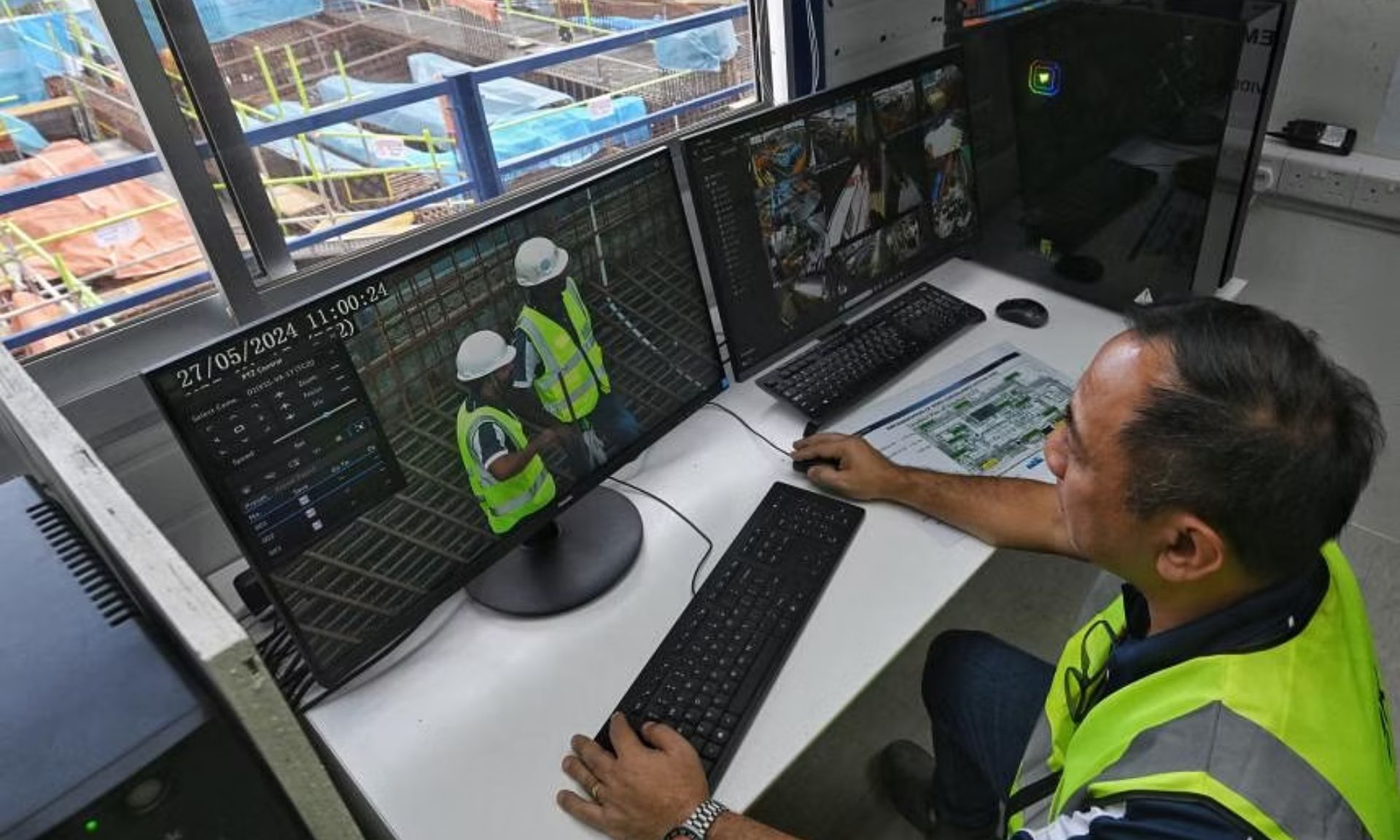Maximum fine for workplace safety breaches to be raised from $20k to $50k from June 1

Source: The Straits Times
Companies breaching safety regulations will soon face a higher maximum fine of $50,000 – up from $20,000 – and construction sites with a contract sum of at least $5 million must have surveillance cameras.
The increased fine from June 1 will apply to all industries under the Workplace Safety and Health (WSH) Act Subsidiary Legislation for offences that are a major cause of death or serious injury, or a dangerous occurrence such as an explosion.
Offences include failing to have protective structures to prevent falls, not appointing competent people to perform critical duties and failing to inspect or maintain equipment such as cranes and scaffolds.
Singapore’s workplace fatality and major injury rates dipped to record lows in 2023, not including 2020 when the Covid-19 pandemic disrupted work.
Thirty-six workers died in 2023, a 21.7 per cent drop from the 46 deaths in 2022, and there were 590 major injuries in 2023, down from 614 in 2022.
On the decision to implement stricter measures despite low incident rates, Senior Minister of State for Manpower Zaqy Mohamad said:
“We don’t want to have a situation where we are complacent. We don’t want to be a one-hit wonder.
“We had a record low year last year, but let’s bear in mind as well that in the year before that, we were still grappling with high (fatality and major injury) rates. Therefore, we wanted to ensure that this is sustainable over time.”
He was speaking on May 27 during a visit to Serangoon Polyclinic’s worksite in Upper Serangoon Road.
It is located opposite Nex shopping mall and Serangoon MRT station, and is slated to open by 2025. It will be the largest polyclinic in Singapore by floor area.
The Ministry of Manpower (MOM) said the increase in the maximum fine will strengthen ownership and accountability of WSH, particularly among senior company leadership, who are responsible for shaping the safety culture at the workplace.
National Trades Union Congress assistant secretary-general Melvin Yong, who was also at the site visit, said:
“Every worker’s life matters. I hope that the higher penalty will make companies think twice and put in place genuine and permanent solutions to make our workplaces safer.”
Although there were improvements in the construction sector, it was still a top contributor of fatal and major injuries in 2023.
To further improve safety, video systems must be deployed at construction sites for projects valued at $5 million or more from June 1.
Comprising a network of cameras, monitors or display units, and recorders, the video systems must be placed at worksite locations where high-risk work is done.
MOM said they will act as a deterrent for unsafe workplace behaviour and offer insights for investigations of safety incidents and near-misses.
A multi-agency workplace safety task force, which announced the measure in May 2023, had said then that companies will bear the cost of implementing the systems.
Mr Zaqy said there are support measures for companies to implement such automated technologies, but emphasised that the safety of workers should not be thought of as a cost “because this is about saving lives”.
During the worksite visit, main contractor Zheng Keng Engineering and Construction showed the media its video surveillance system installed in October 2023.
When any of its 17 cameras around the worksite detects safety breaches, an automated alert is sent to a Telegram chat used by the company’s safety supervisors. One of them will then correct the worker or fix the breach immediately.
The most common breaches among workers are failure to wear their personal protective equipment properly and standing too close to machinery.
The system cost $25,000, which Mr Zaqy said was a small proportion of a multimillion-dollar project. “What’s the cost of a stop-work order over a few weeks or months because you have an injury, fatality or major accident? (If) you weigh that in terms of total costs, on balance, I think some of these technologies are worth the extra money,” he said.
Mr Guo Jin Shun, a WSH officer at Zheng Keng, said that previously, operations personnel who manually surveyed the site spotted nine to 10 breaches every week.
With the new digital eye, the number of breaches has dropped to four or five per week.
Said Mr Guo:
“Experienced and seasoned workers are more confident and complacent. (The cameras) will tend to capture them. We would then educate them and let them know what the unsafe behaviour was.”
One of the company’s workers, Mr Muthu Kannan, 28, said that in the past, some of his colleagues’ unsafe practices would go unnoticed by supervisors.
“(Now) if I remove my helmet or do not wear my vest properly, the camera detects it. I think it’s helpful because it’s safer for us.”
